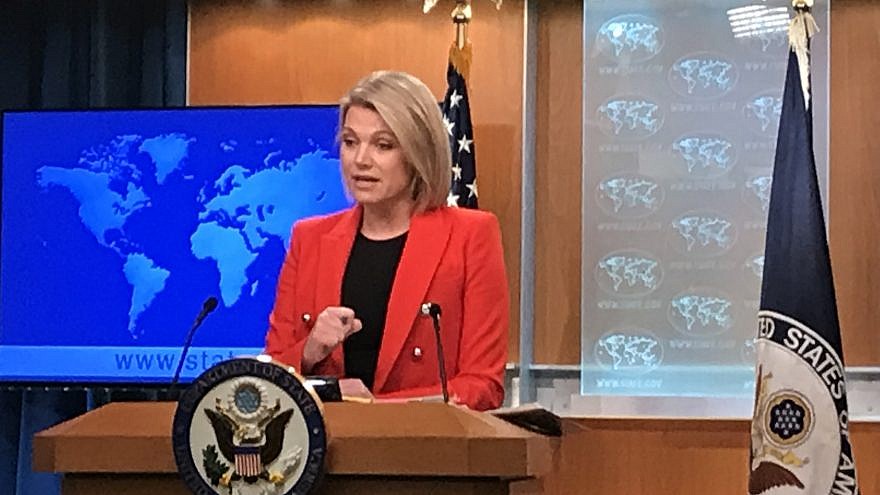Despite the criticism that the Trump administration has gotten over its reaction to last month’s killing of Washington Post journalist Jamal Khashoggi, the State Department stood by U.S. Secretary of State Mike Pompeo’s response.
“It’s a mean, nasty world out there, the Middle East in particular,” Pompeo said last week. “This is a long, historic commitment, and one that is absolutely vital to American national security.”
“Saudi Arabia has taken steps really in the right direction in quite a few key areas,” she said. “And it wasn’t that long ago that we would highlight, right, how Saudi Arabia has taken steps in helping to further empower women.”
“Do they have a longer way to go? The answer, of course, to that is yes. They have also taken steps in the right direction in conversations with Egypt, Israel as well,” added Nauert. “I’m not going to speak on behalf either of those governments, but I would just include that in sort of the basket of taking steps in the right direction.”
In a closed Senate hearing, along with U.S. Secretary of Defense James Mattis, on Wednesday, Pompeo stressed the importance of the U.S.-Saudi alliance: “Iran wants to establish a version of Lebanese Hezbollah on the Arabian Peninsula so the mullahs in Tehran can control seaborne trade through strategic waterways like the Bab el-Mandeb Strait, which connects the Red Sea to the Gulf of Aden,” according to excerpts from the State Department.
“Iranian success in this regard would be bad for America and the world,” continued Pompeo. “As it is doing in Syria to Israel, Iran wants a stronger foothold to threaten Saudi population centers with rockets, drones, and ground forces.”
“The U.S. interest in this first mission is to counter Iran’s regional ambitions and to help our allies and partners protect themselves,” he added. “Just as we must constrain Iranian expansion in Syria, in the Golan Heights, and in Iraq, we must also prevent Iran from entrenching itself in Yemen.”
Pompeo attacked critics and defended his stance earlier on Wednesday in an opinion piece titled “The U.S.-Saudi Partnership Is Vital,” published in The Wall Street Journal.
“Is it any coincidence that the people using the Khashoggi murder as a cudgel against [U.S.] President [Donald] Trump’s Saudi Arabia policy are the same people who supported Barack Obama’s rapprochement with Iran—a regime that has killed thousands worldwide, including hundreds of Americans, and brutalizes its own people,” asked Pompeo rhetorically. “Where was this echo chamber, where were these avatars of human rights, when Mr. Obama gave the mullahs pallets of cash to carry out their work as the world’s largest state sponsor of terrorism?”
“Saudi Arabia, like the U.S.—and unlike these critics—recognizes the immense threat the Islamic Republic of Iran poses to the world,” he wrote. “Modern-day Iran is, in Henry Kissinger’s term, a cause, not a nation. Its objectives are to spread the Islamic revolution from Tehran to Damascus, to destroy Israel and to subjugate anyone who refuses to submit, starting with the Iranian people.”
“An emboldened Iran,” he wrote, “would spread even more death and destruction in the Middle East, spark a regional nuclear-arms race, threaten trade routes, and foment terrorism around the world.”


























